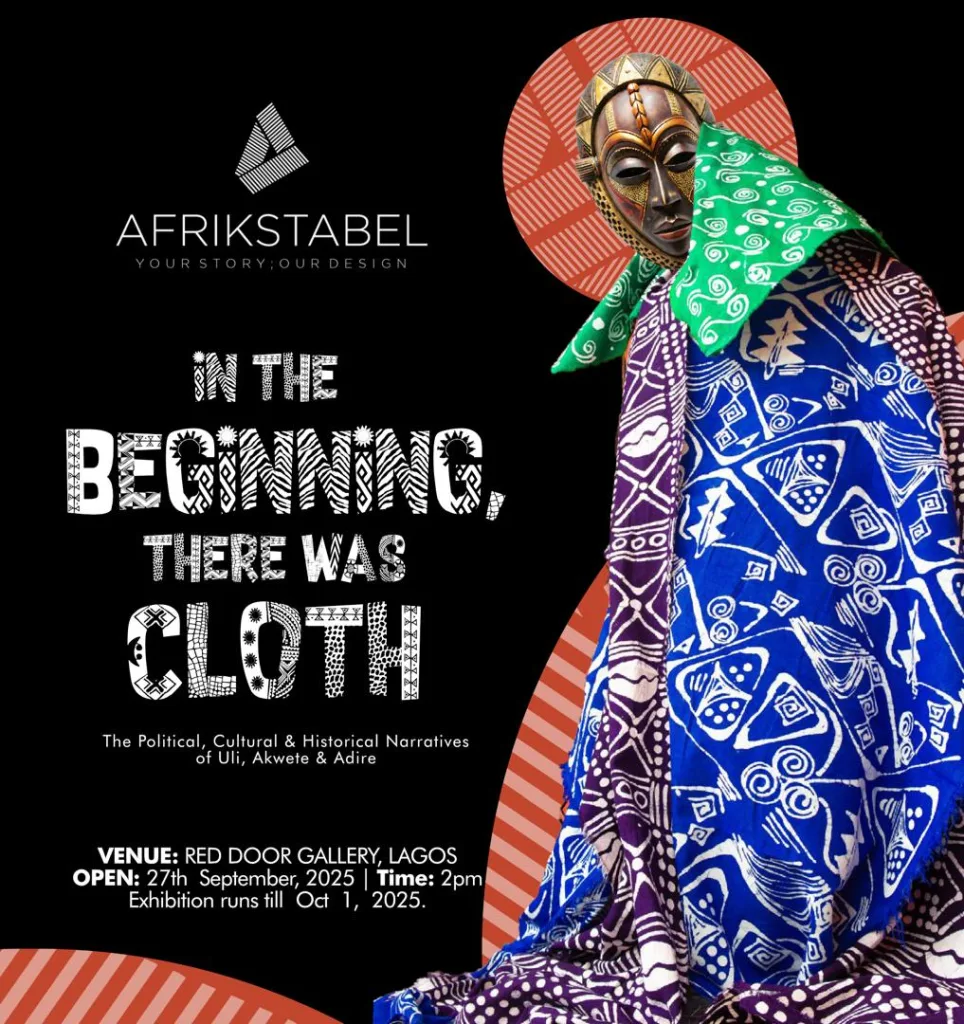Date: September 27 – October 1, 2025
Venue: Red Door Gallery, Lagos
In the Beginning, There Was Cloth is less an exhibition, and more a quiet reckoning and a cultural restoration.
From September 27 to October 1, 2025, Afrikstabel, Nigeria’s leading textile production house, will present In the Beginning, There Was Cloth – an evocative, immersive exhibition, complemented by a coffee art book on textile heritage and a short documentary.
This exhibition, in its truest form, is a return to tactility, to history, to a vocabulary of cloth that long predates the written word where textiles served as political documents, cultural contracts, and ancestral scripts.
In Nigeria, textiles are identity made visible, culture spun into thread, heritage preserved in dye, and art passed from hand to hand across generations.

Long before borders were drawn or flags unfurled, textiles carried the stories of who we were. Adire spoke in indigo of resistance to colonial imposition. Akwete recorded the ingenuity of women’s craft economies. Uli, etched on skin and cloth, encoded ecological wisdom and spiritual cosmology.
Held at Red Door Gallery, Lagos, the exhibition reimagines these traditions for a new era, positioning them not as relics of the past but as active agents in shaping identity, preserving heritage, and challenging cultural erasure.
The exhibition also highlights Afrikstabel’s ongoing work in reviving endangered techniques – work that has led to global partnerships, and sparked renewed conversations around heritage, sustainability, and African design.
“In the Beginning, There Was Cloth is a return,” says Ifebuche Madu, founder of Afrikstabel. “A return to the hands that wove, the symbols that spoke, and the stories that still remain. We are on a revival mission to ensure our identity is ensured. One of our goals for this exhibition is to provide insights to Nigerian textile legacies, and this will serve as the first of the series.
The exhibition is curated by Dr Oludamola Adebowale , a noted historian, archivist and curator whose work interrogates Africa’s visual and material cultures, alongside co-curator Ifebuche Madu. Together, they create a dialogue of artisanal practice, offering audiences a sensory, intellectual, and emotional journey through Nigeria’s textile history.

